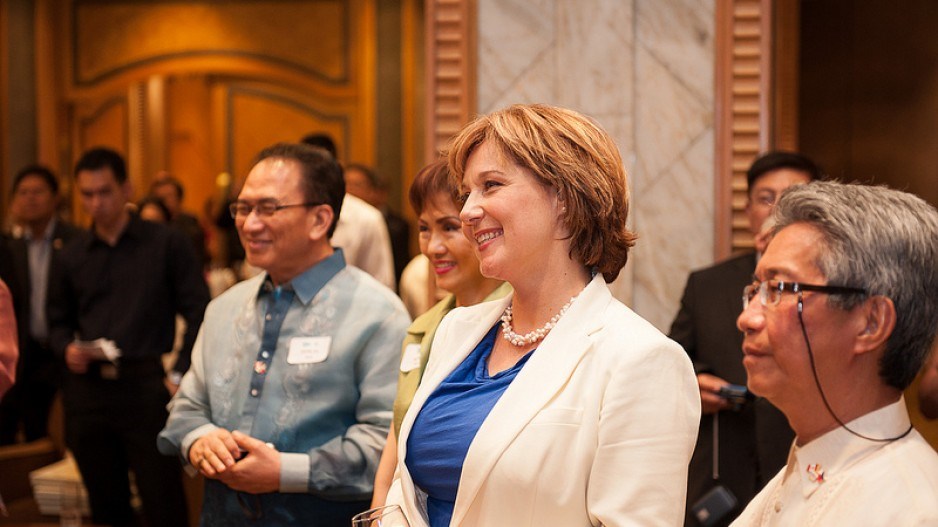A majority – if not all – of the 25 deals and partnerships announced on Premier Christy Clark's recent Asian trade mission would have happened without the mission, trip participants have told Business in Vancouver.
Since the trade mission to Japan, Korea and the Philippines wrapped up May 19, the provincial government has touted more than $500 million in deals signed or announced during the initiative.
They include:
- RCI Capital Group Inc. and TStone Corp. agreeing to $300 million worth of matching funding for investment in Canadian clean-tech portfolio companies;
- Sumitomo Metal Mining Co. and Imperial Metals Corp. revealing a $150 million three-year extension of an existing copper concentrate agreement between the two companies; and
- JX Nippon Oil and Energy Corp. and Xstrata Coa lannouncing a $35 million pre-feasibility study of the Suska Coal Project, which is located between Tumbler Ridge and Chetwynd.
However, after surveying the majority of B.C.-based dealmakers, Business in Vancouver did not find a single business or organization that chalked its deal's success up to the trade mission.
John Hepburn is vice-president, research and international, for the University of British Columbia (UBC). He said UBC's recently announced memorandum of understanding (MOU) with Korea Institute of Science and Technology (KIST) to implement joint research in clean technology and establish a KIST research lab at UBC would have "absolutely" occurred without the trade mission.
"It was something that we'd been discussing with them and [the trade mission] may have advanced it slightly, in the sense that trade missions always put time pressures on these things," he said.
"But we were on the way to signing an agreement with them – which I think is fairly normal for trade missions. You always put together things that are going to more or less happen anyways."
John Park, president and CEO of RCI Capital, said the trade mission served as a "catalyst" that "accelerated" the deal to bring $300 million in Korean and global capital to Canadian clean-tech companies. But he said the deal has been in the works for months.
"Business deals are done between businesses, but government can help by providing favourable conditions," he said.
Ironwood Clay Company Inc., which announced an MOU with Korea-based Durae Corp., also didn't attribute the deal to the trade mission.
"The MOU signed last week in Korea was a direct result of hard work from the B.C. trade and investment office in Seoul over the last 1.5 years," Ironwood president Rodger Uptonwrote in an email from Asia.
Francis De Rosa, manager of media and external communications for Xstrata Coal, also confirmed that the company would have agreed to the $35 million pre-feasibility study without the trade mission.
While not crediting the trade mission for deals done, participants spoke highly of the experience and identified other business advantages from the experience, including:
•profile gains for both organizations and their projects;
•new connections made with Asian partners and B.C.-based trip participants; and
•strengthening existing customer relationships.
Participants also indicated strong interest in participating in future trade missions.
However, the evidence is not yet in as to whether this trade mission, or Clark's previous mission to China and India, has delivered – or will deliver – tangible economic results.
Sauder School of BusinessprofessorJohn Ries researched the economic impact of Team Canada trade missions between 1995 and 2005.
His findings, along with Sauder professor Keith Head?
The missions delivered no discernible increase in trade and investment.
Ries said he still thinks trade missions "in principle" could be valuable for creating new trade.
"But I think that the fact that we didn't find any measurable positive impacts from the very, very big missions with a lot of prestige carried out by Jean Chrétien… I would still like to see hard evidence that they are producing the new trade claimed." •




